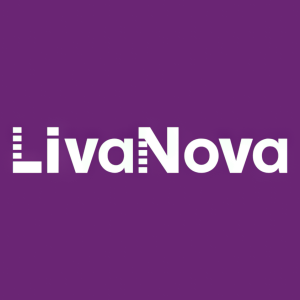LivaNova Provides Update on RECOVER Clinical Study Evaluating VNS Therapy for Treatment-Resistant Depression in Unipolar Patients
Primary endpoint did not achieve statistical significance in unipolar patient cohort
Statistically significant and clinically meaningful benefits seen in select secondary endpoints; no safety concerns identified
The PE measured the difference between active and sham VNS Therapy on the rate of Montgomery–Åsberg Depression Rating Scale (MADRS) response for the unipolar patient cohort with a predetermined p-value of p<0.023. Over the course of 12 months, the active treatment arm demonstrated statistically significant and clinically meaningful improvement from the treatment arm’s baseline. Due to a strong response in the sham group, which was unforeseen in the study design, statistical separation between the treatment and sham arms for the PE was not achieved by the end of the study. Despite this, the totality of data supports a meaningful treatment effect for those who received active VNS Therapy particularly given that the RECOVER unipolar patient population has a significant unmet need after having failed numerous other treatment modalities.
“We would like to thank the patients and physicians who participated in RECOVER to date, as well as the
The Company expects to publish the unipolar cohort data, including details on the PE and secondary endpoints, in peer-reviewed journals in the fourth quarter of 2024. Importantly, no safety issues were reported.
“I am encouraged by the clinically meaningful outcomes for the RECOVER unipolar patient population that is markedly treatment resistant,” said Dr. Charles R.
The bipolar patient cohort continues for RECOVER and LivaNova will continue its discussions with the
About RECOVER
LivaNova’s VNS Therapy has been approved for the treatment of depression since earning CE Mark in 2001 and 510(k) from the
The largest randomized clinical study of its kind, RECOVER is examining up to 1,000 patients ages 18 or older who have unipolar or bipolar depression that is difficult to treat. The double-blind, randomized controlled study is assessing how VNS Therapy can offer patients relief from their depressive symptoms and improve quality of life. It is being carried out at up to 100 leading hospitals and medical centers across
About VNS Therapy for Depression
The VNS Therapy™ System, Symmetry™, is FDA approved and indicated in the
About LivaNova
LivaNova PLC is a global medical technology company built on nearly five decades of experience and a relentless commitment to provide hope for patients and their families through medical technologies, delivering life-changing solutions in select neurological and cardiac conditions. Headquartered in
Safe Harbor Statement
This news release contains “forward-looking statements” concerning the Company’s goals, beliefs, expectations, strategies, objectives, plans, underlying assumptions and other statements that are not necessarily based on historical facts. These statements include, but are not limited to, statements regarding progress relating to the RECOVER study and the VNS Therapy System, Symmetry. Actual events may differ materially from those indicated in our forward-looking statements as a result of various factors, including those factors set forth in Item 1A of the Company’s most recent Annual Report on Form 10-K, as supplemented by any risk factors contained in Quarterly Reports on Form 10-Q and Current Reports on Form 8-K. LivaNova undertakes no obligation to update the information contained in this press release to reflect subsequently occurring events or circumstances.
View source version on businesswire.com: https://www.businesswire.com/news/home/20240606200161/en/
LivaNova Investor Relations and Media Contacts
+1 281-895-2382
Zachary Glazier
Manager, Investor Relations
InvestorRelations@livanova.com
Deanna Wilke
VP, Corporate Communications
Corporate.Communications@livanova.com
Source: LivaNova PLC







